Collection
Date
Location
Type
11 results
Remembering 1807
In 1807 Britain legally abolished the slave trade, although it continued to participate in and profit from the institution of slavery. In 2007 the British government committed public funds to mark the bicentenary of the Slave Trade Act. The Remembering 1807 project has collected and archived material relating to the many events and activities that took place during 2007. These records help us to locate and understand the place of slavery, the slave trade and its abolition in the UK’s public history, commemorative traditions and popular memory. Background to the collection...
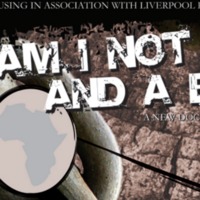
Am I Not a Man and a Brother?
Am I Not a Man and a Brother? was a piece of documentary theatre devised by Reveal Theatre Company in partnership with North Staffordshire Racial Equality Council. It used stories and testimony from the African Caribbean community in Stoke-on-Trent and North Staffordshire, interwoven with historical…
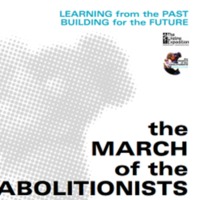
The March of the Abolitionists
The Lifeline Expedition began in 2000 as a reconciliation journey linking the European and African nations. The March of the Abolitionists was organised for 2007, aiming to bring an apology for the slave trade (especially the role of the church); to promote understanding of slavery and abolition by…

Making our Mark: Remembrance, Repentance and Restoration in 2007
This project was the Church of England’s official response to the bicentenary, as CMEAC (established by the Archbishops’ Council) explored the Church’s multi-faceted role in the history of slavery in Britain. Making our Mark focused on connections with local communities, opening access to…
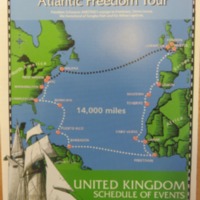
Amistad America's Atlantic Freedom Tour
A replica of the nineteenth-century slave ship Amistad visited Liverpool, Bristol and London as part of the Atlantic Freedom Tour in 2007-2008. The ship set sail from its home port of New Haven, Connecticut, on a 16-month 14,000 mile transatlantic voyage to retrace the slave industry triangle. The…

Cargo
Written by composer Paul Field, Cargo premiered in Hull City Hall in March 2007, sponsored by Hull City Council. Cargo featured contemporary songs, narration, dance and images that told the story of the struggles of slaves, the historical work of William Wilberforce and the abolition movement,…
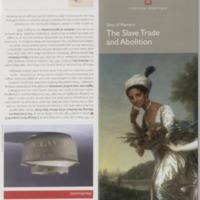
Sites of Memory: The Slave Trade and Abolition
The Sites of Memory project was the first research by English Heritage (now Historic England) to provide an overview for the public of the buildings, memorials and grave sites across England that reflects the role of the slave trade in British history, and resistance to it. The project explored the…
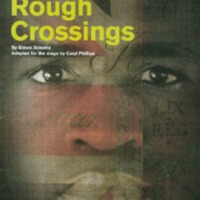
Rough Crossings
Historian Simon Schama's true story of a plantation slave (Thomas Peters) and a British naval officer (John Clarkson) and their search for freedom at the time of the American War of Independence. Schama's account was adapted for the stage by Caryl Phillips, directed by Rupert Goold and produced by…
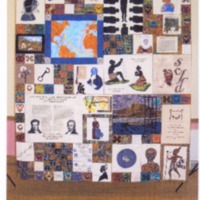
In Stitches
The In Stitches project was led by the African Families Foundation (TAFF) and brought together British, African and African-Caribbean women's quilting groups meeting in London, Liverpool, Bristol, Manchester and Birmingham. The In Stitches Quilt, designed by Janice Gunner, included 60 squares of…
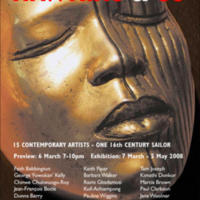
Hawkins & Co
Curated by artist Kimathi Donkor, and first exhibited at London’s Elspeth Kyle Gallery, Hawkins & Co referred to the Elizabethan mariner Sir John Hawkins, whose 16th century voyages to Africa and the Caribbean pioneered the British slave trade. In 2008, an expanded version of the project,…

1807 and Tate
The industrialist Sir Henry Tate was the early benefactor of the Tate Collection, rooted in the art of the 18th and 19th centuries. Tate's fortune - much of which was spent on philanthropic initiatives in Britain - was founded on the importation and refining of sugar, a commodity inextricably linked…
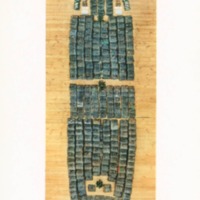
La Bouche du Roi
La Bouche du Roi was created by artist Romauld Hazoumé, who lives and work in the Republic of Benin, West Africa. The multi-media artwork is named after a place on the coast of Benin from where enslaved Africans were transported. It comprised 304 plastic petrol can 'masks', each representing a…